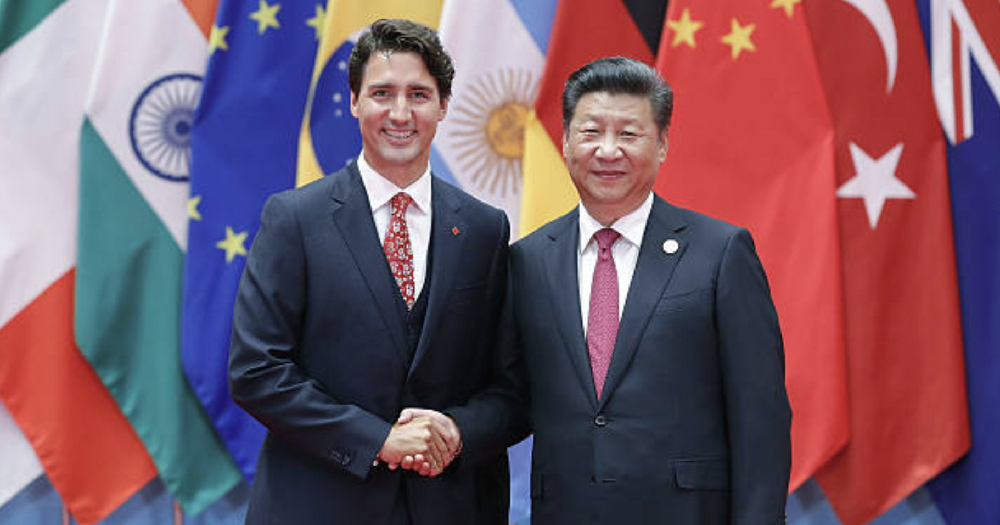The Canadian government has raised its objections to a prestigious defence forum's plans to award a major prize to Taiwan's President Tsai Ing-wen.
Tsai chosen as winner for standing up to China
Canada is one of the major sponsors of the Halifax International Security Forum (HFX), a nonprofit headquartered in Washington, D.C. that aims to strengthen "strategic cooperation among democratic partners", as it states on its website.
Politico reported that in late 2020, the forum's organisers decided to award Tsai with the John McCain Prize for Leadership in Public Service, citing several sources familiar with the matter.
Tsai was chosen to receive the award for "standing strong against China’s relentless pressure", according to Politico.
Cindy McCain, the late Senator's wife who is on the forum's board of directors, gave her approval for the decision as well.
No final decision yet
However, Canadian officials reportedly told organisers that they would withdraw funding from the forum should it award Tsai with the prize.
The dispute is still ongoing as organisers have yet to decide on the award recipient.
The forum's Vice President Robin Shepherd said in a statement that Tsai is "an ideal fit" for the prize as she is "a well-respected international leader, the first female president of Taiwan, and a strong global advocate for democracy".
The award was given away two times previously, once to the people of Lesbos, Greece, for saving refugees, and another time to pro-democracy protesters in Hong Kong.
HFX has stated in its "Handbook for Democracies" that "Xi Jinping's China is now the most powerful authoritarian state in history", and that the forum would help donors strengthen their governments to help them "stand up to China".
China's government has never renounced the potential use of force to bring Taiwan back under its control, and has ramped up political pressure on Taiwan since Tsai took office.
Taiwan is currently left with 15 diplomatic allies following a continuing trend of small countries in the Pacific, Caribbean and Central America switching diplomatic recognition from Taipei to Beijing.
Canada says it's not involved in forum's planning
A spokesperson for Canada's defence minister, Harjit Sajjan, told Politico that while the Canadian government has supported the forum financially, it is "not involved" in the forum's planning. A spokesperson did not confirm or deny if the Canadian government did threaten to pull out.
Sajjan has previously said in late 2019 in a speech at HFX that China is not an adversary.
A year later, however, he expressed "significant" concerns that Canada has about China, such as the latter's "unpredictability", increasing assertiveness, as well as refusal to abide by international rules and norms.
Canada recently joined in a coordinated Western effort to sanction Chinese officials for alleged human rights violations in Xinjiang.
The country has also made moves to limit Chinese strategic presence in the region, blocking the sale of a gold mine in its Arctic territory to a Chinese state-backed firm, according to Defense News.
While this incident appears to run against the larger trend of Canada's deteriorating relations with China at the moment, perhaps it indicates Canada's unwillingness to allow its relations with China to worsen to an irreversible manner.
Canada's increasingly fraught relations with China
Relations between China and Canada had dipped when Meng Wanzhou, the CFO of Chinese telecoms giant Huawei and daughter of Huawei founder Ren Zhengfei, was arrested in Canada in 2018.
Days later, China detained two Canadian citizens on espionage charges that the Chinese government had not elaborated on.
Saying the charges were "trumped-up", Canadian President Justin Trudeau has been trying to get China to release them.
Criticising China in March, Trudeau said the country "needs to understand" that more than just two Canadians, it is about the "respect for the rule of law".
China's decision, however, relies more on the U.S., which has charged Meng for breaching sanctions with Iran.
But while U.S. Secretary of State Antony Blinken has raised the issue at the high-level meeting between China and the U.S. in Alaska, it remains to be seen if U.S. President Joe Biden is willing to take up with issue with China.
Top image by Lintao Zhang/Getty Images
If you like what you read, follow us on Facebook, Instagram, Twitter and Telegram to get the latest updates.
